As the CEO of Tesla and an outspoken advocate of green technology, Elon Musk developed a large and loyal fanbase and was frequently credited as a major force helping to build demand for the automaker’s EVs. But things have changed over the nearly two years since Musk purchased what was then Twitter and began a visible shift towards the political right. That’s changed perceptions of the South African-born Musk for many former fans. But is that costing Tesla sales? Headlight.News has this story.
As a real estate agent in the busy Palm Springs region, Robert Kalin clocks plenty of miles on the road and likes to replace his vehicle every three years. Openly concerned about the environment, he decided to go all-electric the last time he was in the market and purchased a Tesla. But when it was time to trade in again recently, Kalin told Headlight.News, he decided to shift brands.
While he had a few issues with his Model Y, “The number one reason” he says he switched to the all-electric Cadillac Lyriq “was Elon Musk. He’s a complete egomaniac and I don’t want to give Tesla any more of my money.”
In interviews and searches online, over a dozen EV owners told Headlight.News they will not buy another Tesla specifically because of Elon Musk. And the same sentiment was echoed by a number of shoppers looking to buy an EV in the months ahead.
While it’s hard to tell how to measure such anecdotal evidence, analysts who follow the auto industry say they’ve also begun picking up what could be a trend working against the automaker and reflecting the highly public shift Musk has taken to the political right since purchasing Twitter in October 2022.
Tesla sales tumble, even as EVs continue gaining ground
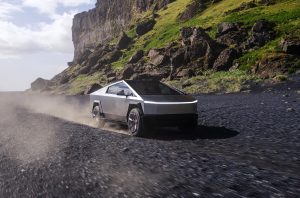
Tesla sales would have been down even more sharply if not for the modest number of Cybertrucks delivered this year.
Tesla remains, by far, the biggest seller of battery-electric vehicles in the U.S. but its market share is taking a beating, tumbling from 52.5% during the first eight months of 2023 to 48% during the same period this year. Few are surprised to see Tesla lose market share, however. It was inevitable considering the flood of new product and brands entering the U.S. EV market, several analysts stressed.
What’s more significant, they said, is the Texas-based automaker’s 8.5% drop in year-over-year volume. Deliveries during the January-through August fell to 388,750 this year. That’s an 8.5% decline from the 424,950 EVs Tesla delivered in the U.S. the prior year.
By comparison, the overall EV segment grew 7.4% during the same period year-over-year. Pull out Tesla, and demand for other EV brands grew 12.2%. Tesla alone has been a major factor in the overall slowdown of the U.S. EV market.
With so many more “compelling products” to pick from brands ranging from Audi to Volvo, it’s not a surprise the competition is gaining share and building sales, said Ed Kim, the CEO of research firm AutoPacific, Inc.. But “Tesla sales have absolutely cratered this year.”
The question, he and other analysts are asking, is why?
The Musk factor
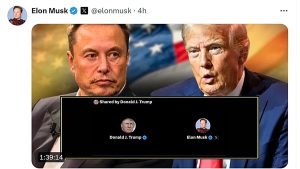
Musk has shifted to a much more conservative political stand and now endorses the election of Donald Trump. He hosted a live 2-hour interview with Trump on X.
Despite his claims, Elon Musk didn’t actually create Tesla. He came in as an early investor and eventually forced out its original founders. He quickly became a force to reckoned with. In an industry filled with largely faceless executives, Musk routinely made headlines talking about everything from EVs to building rockets to take pioneers to live on Mars.
There’s no question that he helped build Tesla’s image, according to Sam Abuelsamid, principle auto analyst at Guidehouse Insights, and, in turn, help sell its vehicles. Even competitors give him grudging credit. During a joint news conference last May, Ford CEO Jim Farley repeatedly hailed Musk for his role in creating an EV market.
But Musk’s image started to shift in the months leading up to his acquisition of Twitter, which closed in October 2022. The South African-born entrepreneur began sounding more conservative on political issues and, once he took over the social media site – then renaming it X – Musk took heat for not only allowing some banned posters back on the service but appearing to back some of its most controversial posts.
Within six months, X’s revenues tumbled 40% and when Musk appeared to approve of some anti-Semitic comments, major advertisers began to flee. Ad spending during the first half of this year fell to $744 million, a 24% year-over-year decline.
There are signs that Musk’s shifting image is a factor behind Tesla’s sales decline.
More Tesla News
- Still More Layoffs at Tesla as Sales Tumble
- Tesla Planning $25,000 EV Codenamed Redwood
- Tesla Hauls Rivian Into Court Over Alleged Trade Secret Thefts
“He went off the deep end”
“I was heavily considering getting a Tesla when my lease was up because I do like having an electric around-town vehicle,” said Erica S, a media expert from Scottsdale, Arizona. “But Musk is so crazy pants that I just can’t even” consider buying one, said Erica, who asked to have her last name abbreviated to avoid running afoul of some of the clients she works with.
Erica says Musk was “awesome” when he spoke at a conference she attended years ago, but she has grown increasingly wary of him as she feels he keeps going further “off the deep end. That’s why I just can’t buy a Tesla.”
That was a position Headlight.News heard over and over again as it reached out to current and potential EV buyers. A number, like Kalin, said they would switch to other brands when it’s time to trade in. Others said they seriously considered a Tesla but have – or will – go elsewhere. One current owner said he cancelled an order for a Model Y after Musk formally endorsed Donald Trump for president. Another said he has delayed trading in while he decides whether to keep his Model Y longer, switch brands or, “holding my nose,” stay with Tesla.
The Musk backlash appears to extend beyond U.S. borders. Nick Chambers, a strategic management consultant in Germany, said he initially tried to “brush off” Musk’s behavior but “There’s no way to make excuses anymore.” Chambers had given serious thought to purchasing a Tesla but instead opted for a Hyundai Kona Electric. “As long as this behavior continues, I will never buy a Tesla.”
Alienating core buyers
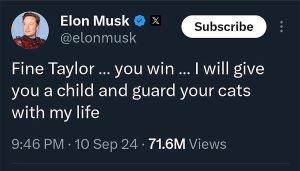
Elon Musk kicked off more controversy with this tweet responding to Taylor Swift’s endorsement of Kamala Harris.
In his early years as a highly visible executive, Musk gained a vast following among a variety of different groups, such as techies. But some of his most loyal backers were environmentally minded liberals who backed their feelings up by purchasing Tesla products.
They largely appeared to ignore the executive’s increasingly conservative positions until the Twitter acquisition gave him a digital megaphone, said Anthony Johndrow, the head of Reputation Economy Advisors, a firm that works to help corporations manage their public image. And Musk has used what is now called X to take on a series of increasingly controversial topics.
There has been a “proliferation of negativity” with X, said Johndrow, and that has alienated many core buyers. “For a long time, he was appealing” to a broad realm of Americans, especially the liberal customers who buy the vast majority of EVs. “But as he goes darker and darker with the hate and general hostility it’s going to definitely hurt the brand and impact sales.”
Is there a reason to be worried?
Not everyone is quite so concerned, however.
While there is no question Musk has become increasingly divisive, analysts suggest, he may be able to win over the more conservative car buyers who, until now, tended to be more skeptical of EVs, said AutoPacific’s Kim.
There is no question Tesla’s “sales have dropped precipitously this year, but it’s not clear whether that’s because of Musk or because there are a lot of compelling products from competitors, said Kim, adding that, “I think that consumer behavior really doesn’t change relative to a company head’s politics.”
Ian Taras, an OB-GYN from Los Angeles is a case in point. He has been deeply concerned about the Tesla CEO’s behavior, saying that “Elon has gone off the rails.” But Taras said that this still “wouldn’t be a factor for me” next time he goes looking for a new EV.
Ironically, Taras did trade in his Tesla in for a new Lucid Air sedan, but he said that was due to ongoing problems with the old EV’s fit and finish, quality and service problems.
Hard data hard to come by
Talk with anyone who tracks the auto industry and what some call the Musk Factor has become a major topic. Michael Darrow, former CEO of TrueCar said he was beginning to see data showing the Tesla chief negatively impacting sales as far back as 2022.
But Abuelsamid, from Guidehouse Insights, is among those analysts who cautions that research so far tends towards “the anecdotal.” Abuelsamid does believe Musk is responsible for some of Tesla’s recent sales declines but he says more work is needed to get a clear insight into just how much of an impact the Musk Factor is having.
For his part, reputation specialist Johndrow said he has little doubt. While it would be good to have more conclusive data he’s convinced Musk has become a serious liability for Tesla. “If I were on the Tesla board, or a shareholder,” he said in a telephone interview, “I’d definitely be worried right now.”


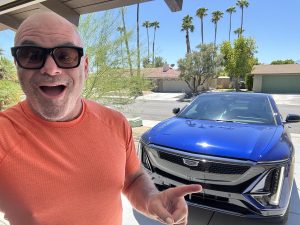
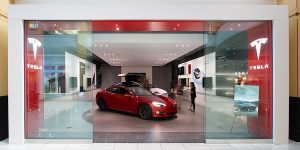
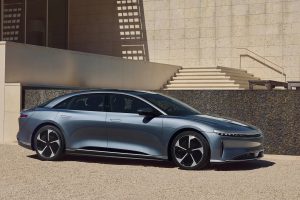

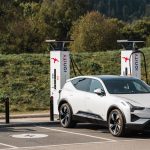
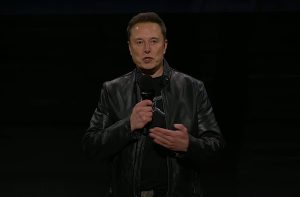
Is Tim Cook’s political shift hurting Apple?
I, for one, wouldn’t buy an (overpriced, left-leaning) Apple product.
Elon Musk has made buying a Tesla about him. He’s a lunatic. Hence, I’m not buying one.